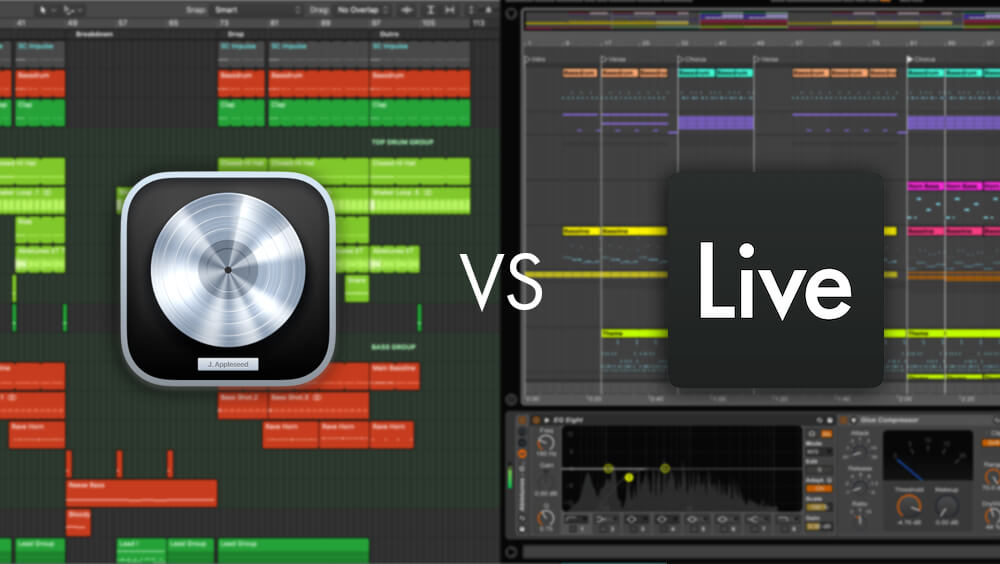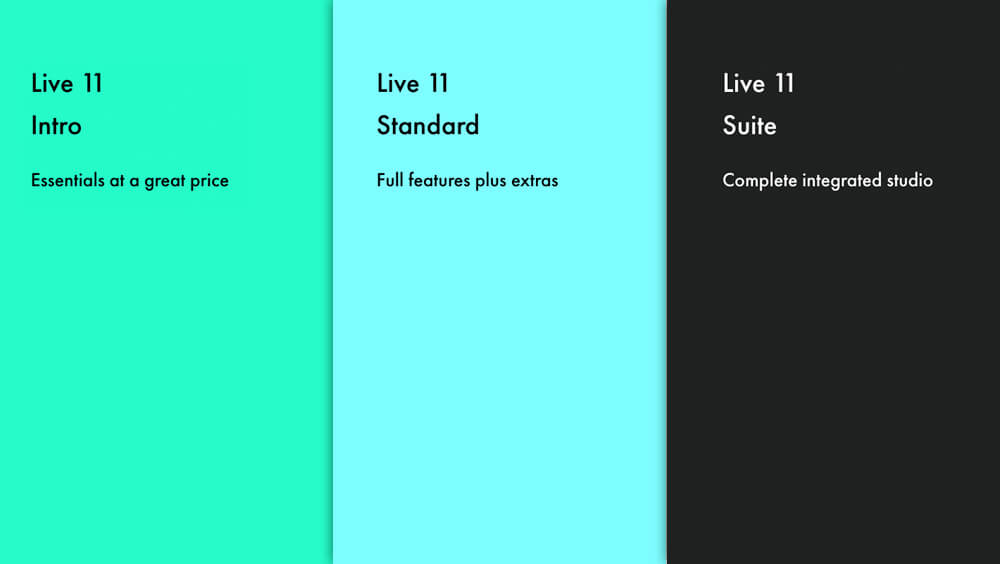Get Your Music Heard and Signed to a Label
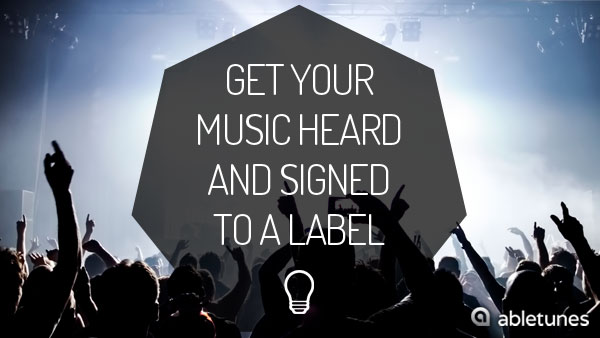
Hello there fellow electronic music producers! Abletunes here with some rock solid advice on not only getting your track heard, but possibly signed as well. We all know there are thousands, if not millions of us writing electronic dance music. Ok, maybe not millions but sometimes it sure can feel like it. That being said, how do you stand out above the rest? How do we get a label to not only listen to our tracks but to also sign them? After all, that is the goal, right? Or was it the fame and money? Ok well hopefully that comes soon enough!
Getting your track listened to is not as hard as you think. Getting it signed is another task altogether. In this article we’re going to go over some of the do’s and don’ts of getting yourself noticed.
1. write good music

The first thing probably goes without saying but you have to write good music. Not just the tracks that your girlfriend, boyfriend or mother likes, but the kind that people you don’t know like. You need to make sure you’re getting the proper feedback from people who will be honest with you. Your friends and relatives will generally always tell you they love what you’re doing. God bless them. But the truth lies within the people who have nothing to loose from being honest with you.
When you finish your track, get it up in a place where you can share it publicly and get good honest feedback. One suggestion we have is Soundcloud. Once your track is uploaded join some Soundcloud groups and start asking for some feedback on your track from other producers. Everyone loves to talk and most producers will be obliged to give you some feedback.
Bare in mind you more than likely will get some troll who just wants to be negative to try to ruin your day. Forget about their negative feedback and focus on the producers who are giving you good constructive criticism. If you’ve got the funds you can also pay for services like Audiu where for a small fee you can pay for feedback from a seasoned professional. The site is good because you can get the criticism you need from some of the top producers around. Another plus side here is that a lot of these guys also run labels so you never know what might transpire!
2. Quality

Our number two item is just as important as our number one item if not more and that is MASTERING (as well as overall quality). If you’ve been writing EDM for a while now you’ve probably heard that term but may think, “What is mastering?”
Mastering is the final process and last step in the production process. A good mastering engineer will take your finished tracks and polish them up so they are ready for the world. The mastering engineer will often find problems with your mix if there are any and either correct them or tell you what you need to do in your mix to correct the issue.
It is extremely crucial that your tracks be mastered before you send them off to a label if you want to be taken seriously. Some labels pay for mastering but we are firm believers that first impressions are everything. When first starting, get your tracks mastered before sending them to a label so they are at their best right from the get go. The label may still want to use their own in house mastering but from our experience its best to have your track be competitive when shopping it out.
3. Finish your tracks
This next item of topic would seem like a no-brainer but trust us it’s not uncommon. FINISH YOUR TRACK! Don’t send the label your idea or a half written track telling the label “Hey this is the general idea”.
4. Contracts, Money and Fame

This is a topic we deal with a lot. Everyone wants to know “When will I get paid? When will I get famous? and Where is the contract? First things first: The Contract. We could do a whole write up on this topic alone but know this: Every contract is different. Make sure you read it over and are comfortable with the terms. If you don’t understand what you’re signing or getting yourself into, have an attorney look it over for you and explain exactly what it says.
If you can’t afford an attorney, ASK AROUND! Everyone knows someone who knows someone who’s a lawyer. Now in this case you would want a proper entertainment lawyer but anyone who knows contracts should be able to help look it over for you. Now the money: If you’re signing your first track… Be happy that you’re signing your first track. In this ever changing marketplace it’s important to remember there are many producers out there making quality tracks.
Remember you’re trying to get your name out there right now. The money and fame will hopefully come later. Once you build your name and start rubbing elbows with other big names, you can start to entertain asking for a remix fee or humble advance on your tracks.
5. Labels
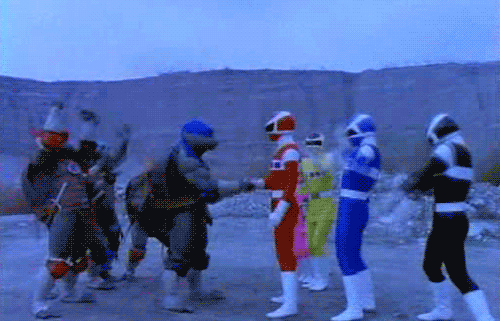
On to the actual shopping! So how do you shop your track? For this simple tip we’re going to keep things fairly, well… simple. There are really only a few ways to get your tracks into the ears of prospective labels. We’re going to discuss the easiest and most effective way: Soundcloud.
Most labels at this point in the game have a Soundcloud account. Once you’ve done your homework and whittled down your list of labels that are your top choices, make yourself a proper list and start looking them up on Soundcloud. Once you’ve found them, most labels will have some instructions on how they would like demo submissions. Now this also means you will need a Soundcloud account as well. So get on it!
Now most labels will more than likely give you 3 choices:
1. Submit through Soundcloud
2. Email them your demo
3. No Demo Submissions.
If they want the demo through Soundcloud you’re in luck! If your track is already uploaded to your Soundcloud account you can send them your track right there on the spot. If they want you to email them your demo we suggest you do 2 things:
1. Get the email address and start your email. Copy the link to your track. Now your track should be set to private as you’re trying to woo the label and you don’t want them thinking you’ve already shared it with the world. Paste the link in the email, be professional and tell them you’re submitting your track for their consideration. DO NOT WRITE YOUR LIFE STORY. The label doesn’t have time nor do they care that you wrote your track on a two-man life raft while barreling down the Trinity River with a hole in the side of the boat as you kept your laptop dry and wrote this massive banger. Keep it short and sweet.
2. Upload a 320kb MP3 to your favorite file sharing site, get the link and paste that one as well. This way you’ve given them 2 options. They now have the Soundcloud link AND an MP3 copy to download. Why send them an MP3? Some labels have label bosses that play out on the weekends. If they like your track they may take it for a test drive! Or they may want to have it while they’re on the go and might not have access to the Internet.
Another reason we love Soundcloud is the tracking. When you submit your demo through Soundcloud you can see if the label played it or even downloaded it. This allows you to make the easy decision to submit to another label in the event that the one you’ve sent has not responded to your track. We recommend giving each label at least 2 weeks to respond.
For honorable mention we also we want to point out another demo service called DemoDrop. Here you can also manage your tracks, downloads, reviews and plays in the same fashion as Soundcloud. What’s really cool is that you can sign in with your Soundcloud account and keep the two connect. Definitely worth checking out.
Now the last option we have is the “No Submissions”. No Demo Submissions means exactly that. Don’t submit, as you’ll only show them you can’t follow instructions.
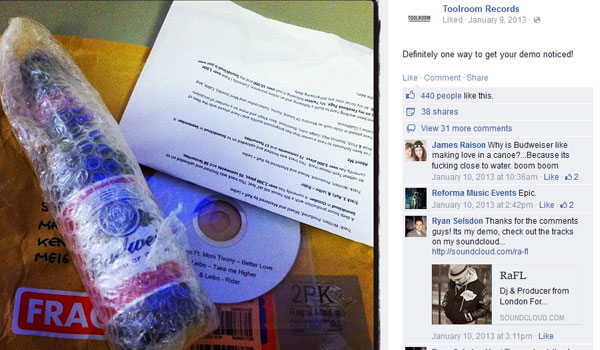
6. Professionalism
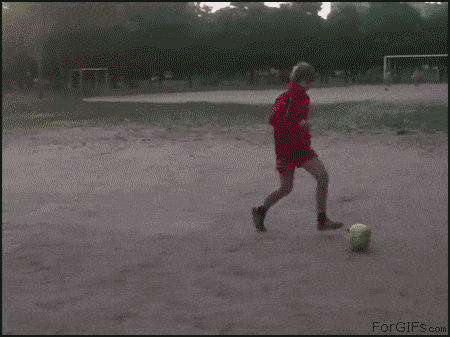
Lets talk about being a pro. You need to look like you know what you’re doing. We have a few pointers for your Soundcloud tracks and overall web presence that can be very crucial in having a label take you seriously. When you upload your track(s) to shop to a label, one of the worst mistakes young producers make is sending the track link to 20 different labels. What this says to all 20 of those labels is “Hey I don’t care who signs my track just as long as someone does”. If you don’t care who takes your music either will they. Plus you make the label feel like they’re not special to you. You want that label to feel and think they are the only label for you.
Send your track out to one label at a time. Don’t be in a rush. Or upload multiple instances of your track and send one link per label. Always label your track in this fashion. “ARTIST – TRACK NAME – PROSPECTIVE LABEL – MASTERED”. It doesn’t get any more professional than that. Your track title should look something like this:
Bad Ass Producer – “Future Banger” – Spinnin Records – MASTERED
Another thing to keep in mind is that you need to know your labels. Do not send a deep house track to a dub step label. So many labels we talk to tell us how they constantly get tracks that are not even in the same genre they release. This will waste not only your time but definitely not score you any points with your fellow colleges.
The last thing we need to address is the track description. You need to take this opportunity to make sure you’ve got your contact info including your name, email and take this time to put your social media links so the labels can check out what else you’ve go going on. Again, keep it short, sweet and to the point.
Now for overall web presence. We suggest not having cheesy graphics to go with your tracks or your Soundcloud profile picture. Look at some of the people who are doing really well that you admire. Do they have a picture of their favorite comic book hero? No? Either should you. Get a pro picture (not the one your mom took of you jumping off your porch). If you don’t have a good headshot, make yourself a cool logo or find a designer who can do a good logo on the cheap.
7. Better to sign or not to sign?

That could be the question. We have a lot of producer friends here at Abletunes and we get asked quite a bit if artist should sign to a lesser-known label. This is really up to you but remember once you’ve put a track out there you can’t take it back. Signing to a small label or a lesser-known label can hurt your career.
When you decide to move up in the world and submit to a larger label they can look at where you’ve been and if you’ve got a history of signing with small labels they may decide to pass. We recommend giving some thought to just giving the track away and letting some good music blogs know of the free download. Plus Fans, Djs and other music lovers love free downloads. This can score you some massive clout points.
8. Last but not least: Have fun!

Don’t take yourself too seriously at first and prepare for disappointment. Not everyone will like your music but some will! You have to find those people, be nice to them, and give them what they want, which is hopefully more of your music.
Also keep in mind that everybody knows somebody. Once you start your journey of shopping your track make sure to make connections along the way with other artist in your genre as well. Chances are some of these connections will have a direct connection to an A&R somewhere. You never know when your luck will strike and you’ll get a great hook up!
Article by Mac Vaughn
